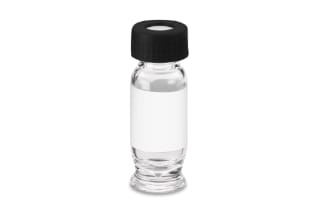Small Molecule LC/MS Standards
Easily test, evaluate, validate, and troubleshoot applications
Ultra-Performance Liquid Chromatography (UPLC) combined with mass spectrometric (MS) detection is used successfully in the analysis of small molecules. The Waters Small Molecule Standards consumable line provides relevant application-specific standards for evaluating and running many small molecule applications, including MetID, omics, bioanalysis, and extractables and leachables.
Specifications
Overview
- Reduce variability, rework, and paperwork
- Save time with predetermined, stable mixes specific to applications
- Test, validate, and troubleshoot applications
Recommended Use: For evaluating, validating, and troubleshooting many MetID, Omics, bioanalysis, extractables and leachables applications.
Features Header
Analgesic Mix
Waters Analgesic Mix is specifically for small molecule work and experiments with scaling of a system from HPLC to UPLC in this application area. This 7-compound mix is comprised of acetominophen, acetomidophenol, acetanilde, acetylsalicylic acid, caffeine, phenacetin, and salicylic acid.
System Evaluation Matrix #1
The System Evaluation Matrix #1 is intended for use as a reproducible background signal in the evaluation of LC and MS system performance. It is especially suitable for standard small molecule applications where a complicated matrix is required but naturally occurring alternatives, such as urine and plasma, are impractical.
MetID Small Molecule Standard Mix
The MetID standard is a 3-component mix of omeprazole and 2 metabolites used for validation of the Waters Metabolite Identification system and software.
